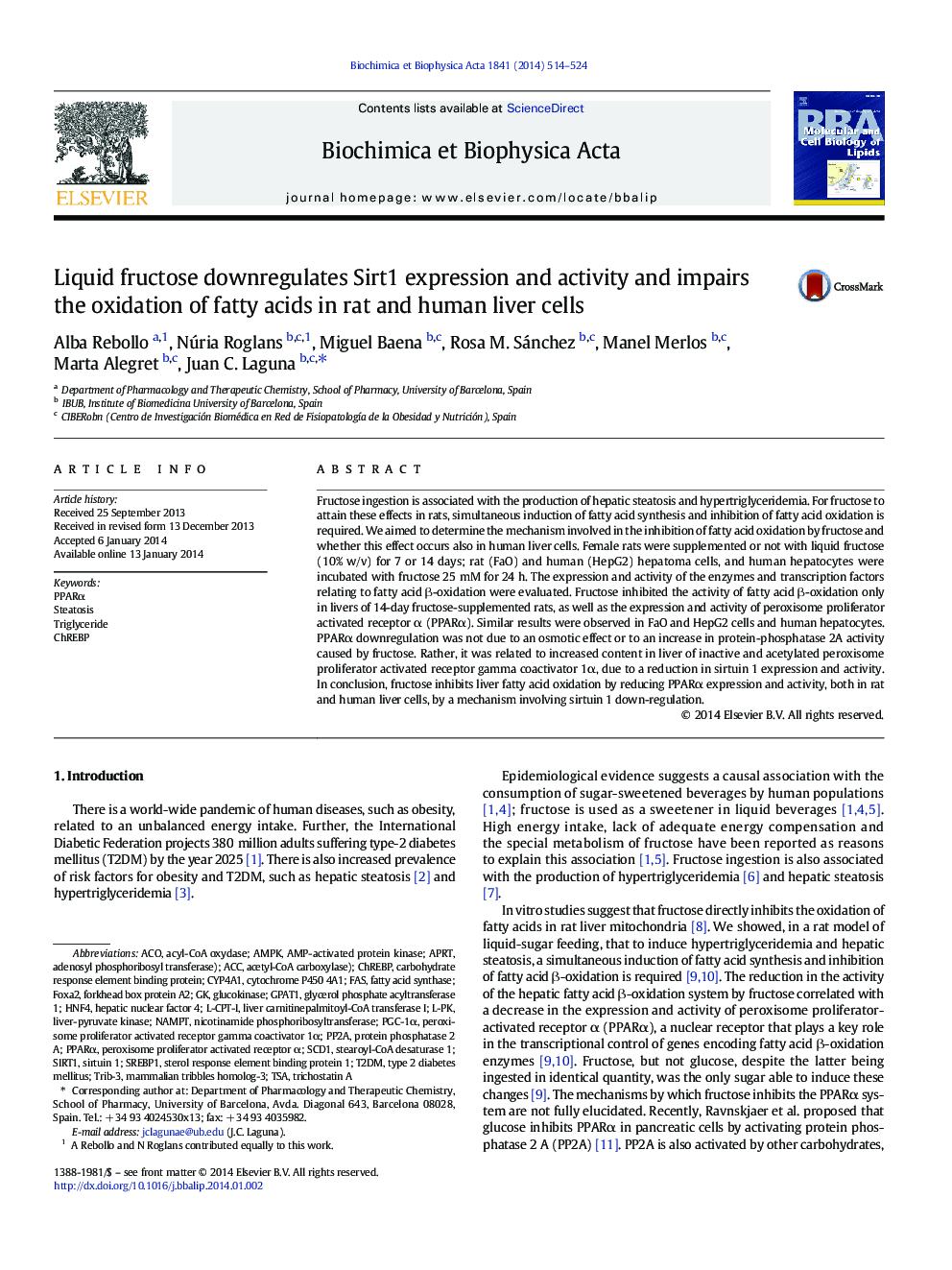| Article ID | Journal | Published Year | Pages | File Type |
|---|---|---|---|---|
| 8302396 | Biochimica et Biophysica Acta (BBA) - Molecular and Cell Biology of Lipids | 2014 | 11 Pages |
Abstract
Fructose ingestion is associated with the production of hepatic steatosis and hypertriglyceridemia. For fructose to attain these effects in rats, simultaneous induction of fatty acid synthesis and inhibition of fatty acid oxidation is required. We aimed to determine the mechanism involved in the inhibition of fatty acid oxidation by fructose and whether this effect occurs also in human liver cells. Female rats were supplemented or not with liquid fructose (10% w/v) for 7 or 14 days; rat (FaO) and human (HepG2) hepatoma cells, and human hepatocytes were incubated with fructose 25 mM for 24 h. The expression and activity of the enzymes and transcription factors relating to fatty acid β-oxidation were evaluated. Fructose inhibited the activity of fatty acid β-oxidation only in livers of 14-day fructose-supplemented rats, as well as the expression and activity of peroxisome proliferator activated receptor α (PPARα). Similar results were observed in FaO and HepG2 cells and human hepatocytes. PPARα downregulation was not due to an osmotic effect or to an increase in protein-phosphatase 2A activity caused by fructose. Rather, it was related to increased content in liver of inactive and acetylated peroxisome proliferator activated receptor gamma coactivator 1α, due to a reduction in sirtuin 1 expression and activity. In conclusion, fructose inhibits liver fatty acid oxidation by reducing PPARα expression and activity, both in rat and human liver cells, by a mechanism involving sirtuin 1 down-regulation.
Keywords
Sirt1Forkhead box protein A2sterol response element binding protein 1GPAT1L-PKCYP4A1SREBP1HNF4SCD1FOXA2ChREBPT2DMsirtuin 1NAMPTAMPKACCPPARαTSAPP2AAPRTACOPGC-1αFASAMP-activated protein kinaseStearoyl-CoA desaturase 1fatty acid synthaseTrichostatin AtriglycerideSteatosisType 2 diabetes mellitusHepatic Nuclear Factor 4nicotinamide phosphoribosyltransferasecarbohydrate response element binding proteinGlucokinasePeroxisome proliferator activated receptor α
Related Topics
Life Sciences
Biochemistry, Genetics and Molecular Biology
Biochemistry
Authors
Alba Rebollo, Núria Roglans, Miguel Baena, Rosa M. Sánchez, Manel Merlos, Marta Alegret, Juan C. Laguna,
